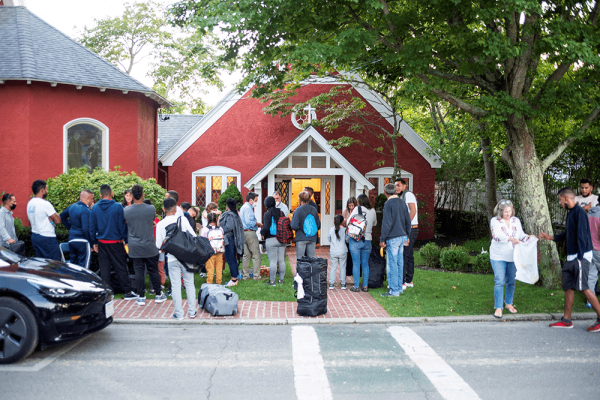Sep 22, 2022
When about 50 people found themselves stranded last week on Martha’s Vineyard, the island’s nonprofit social services agency called on local churches to help. “We rallied and did what any decent human being would do if strangers showed up,” local pastor Rev. Charlotte Wright told Sojourners this week.
Read the Full Article

Already a subscriber? Login
